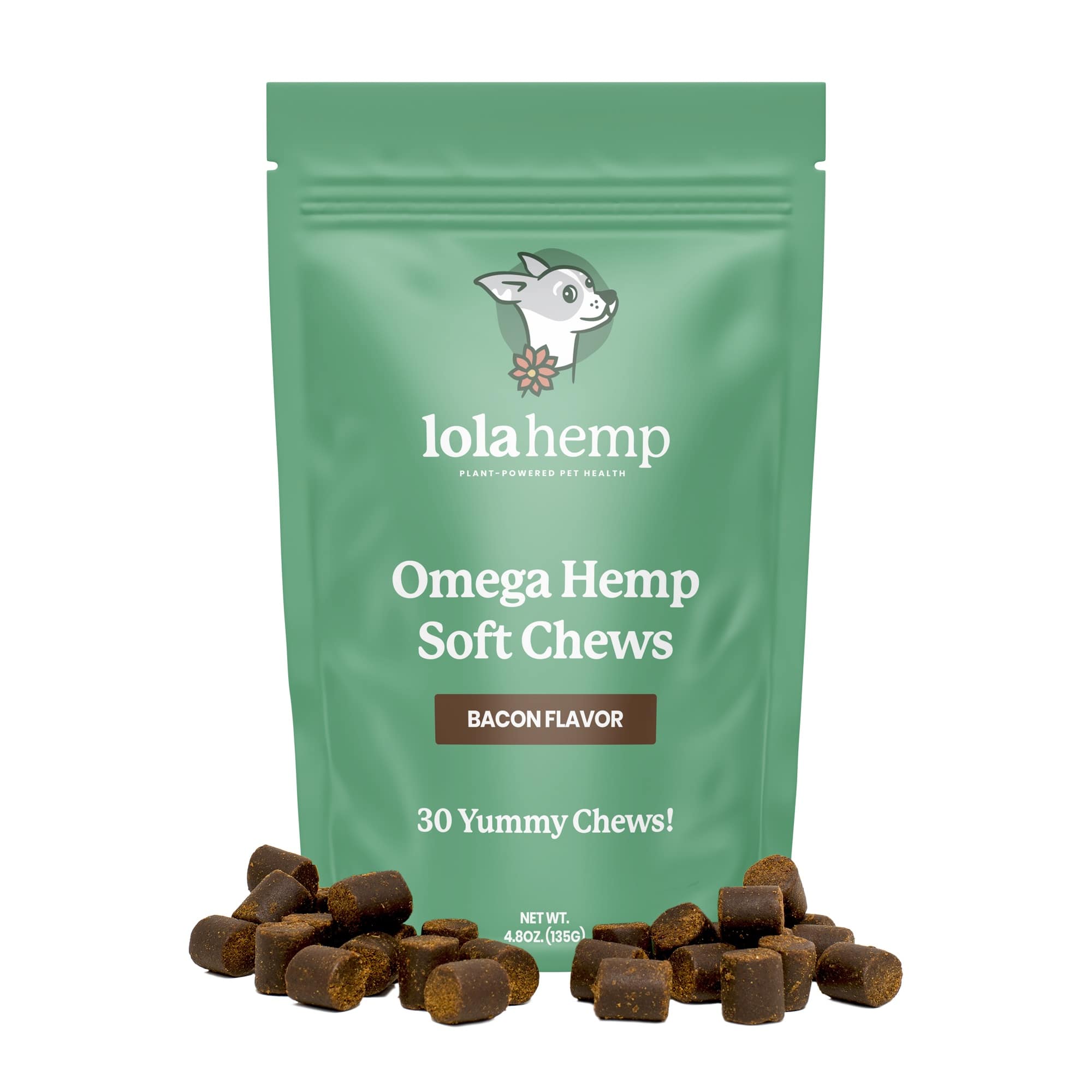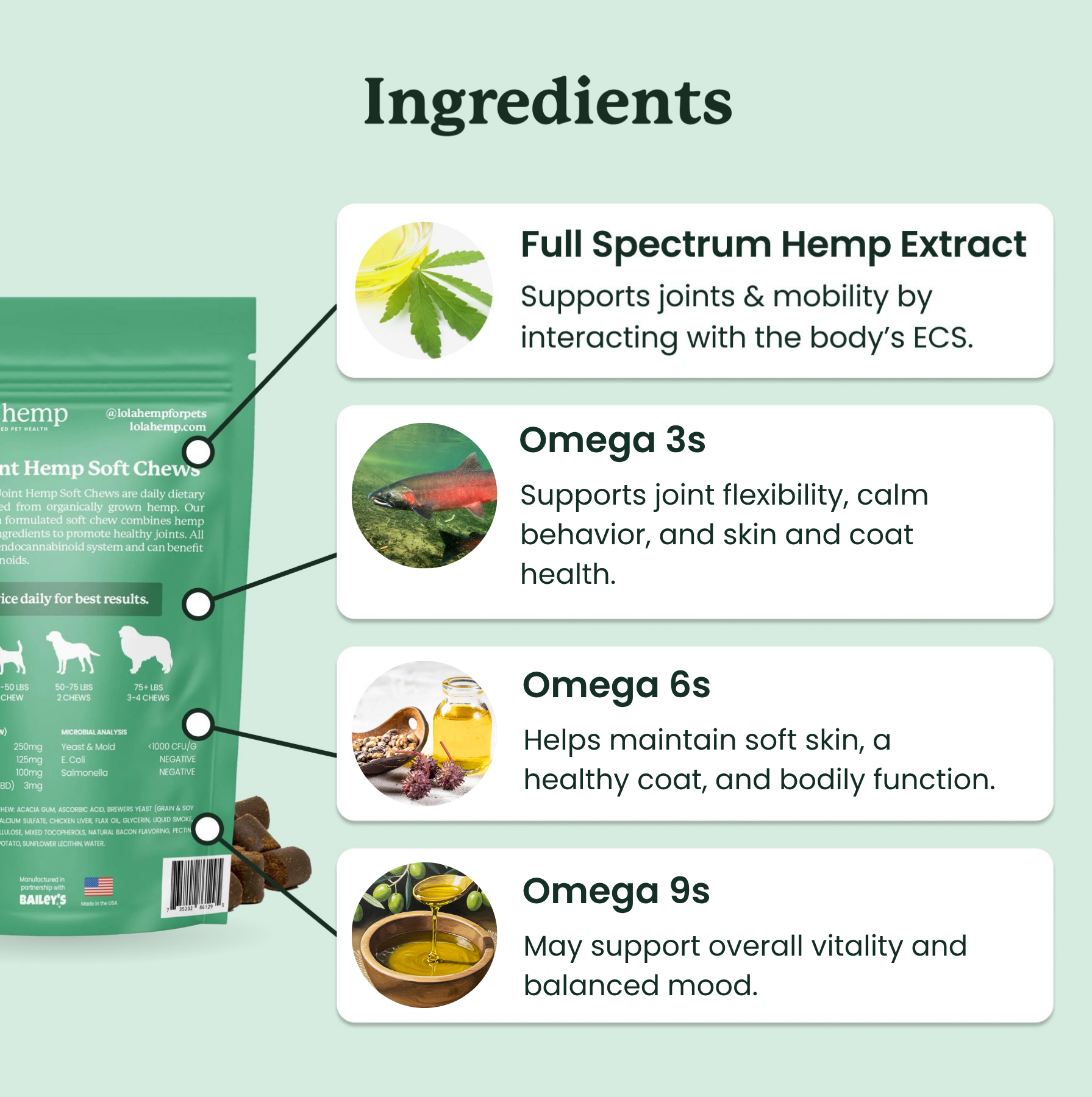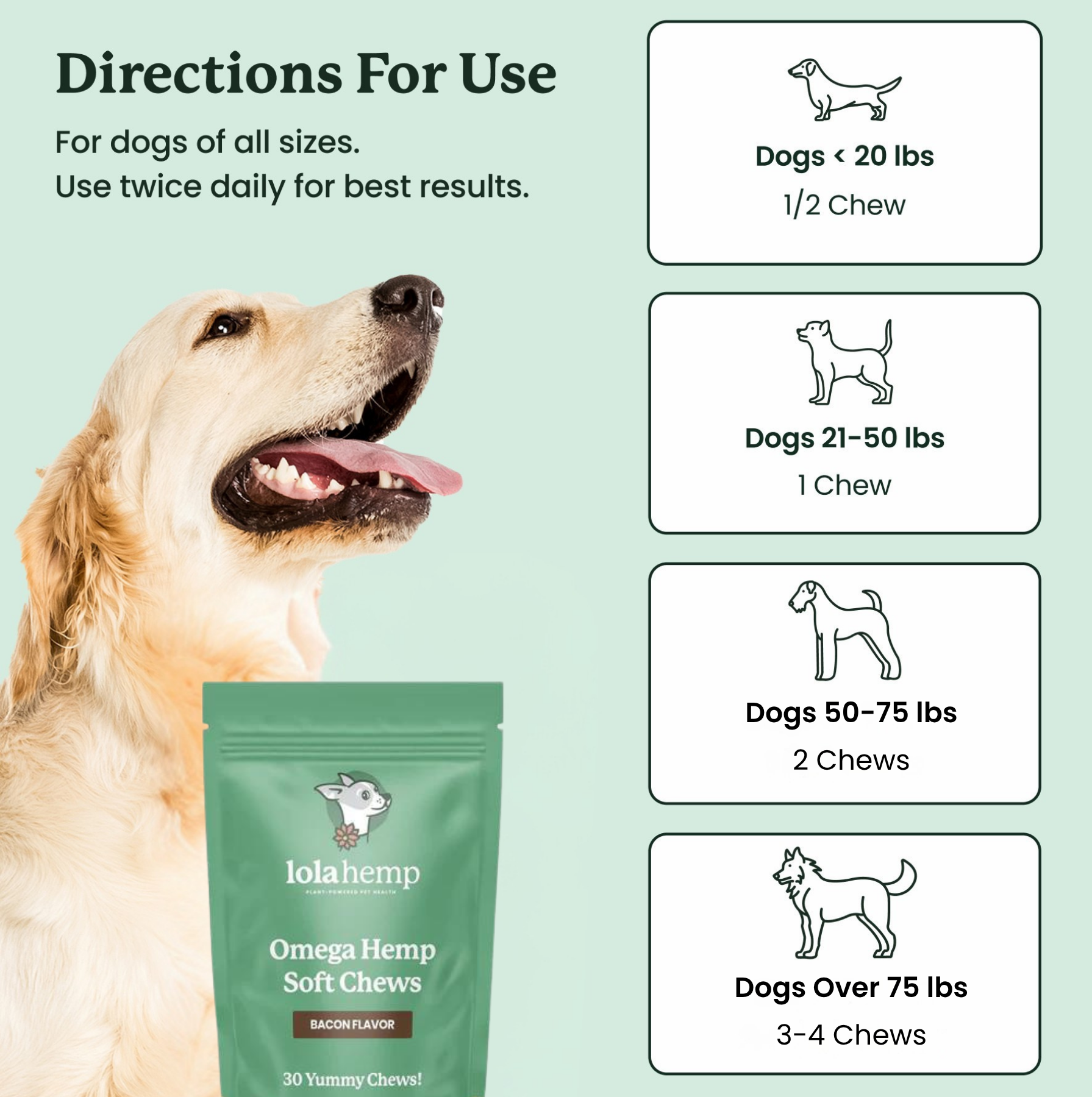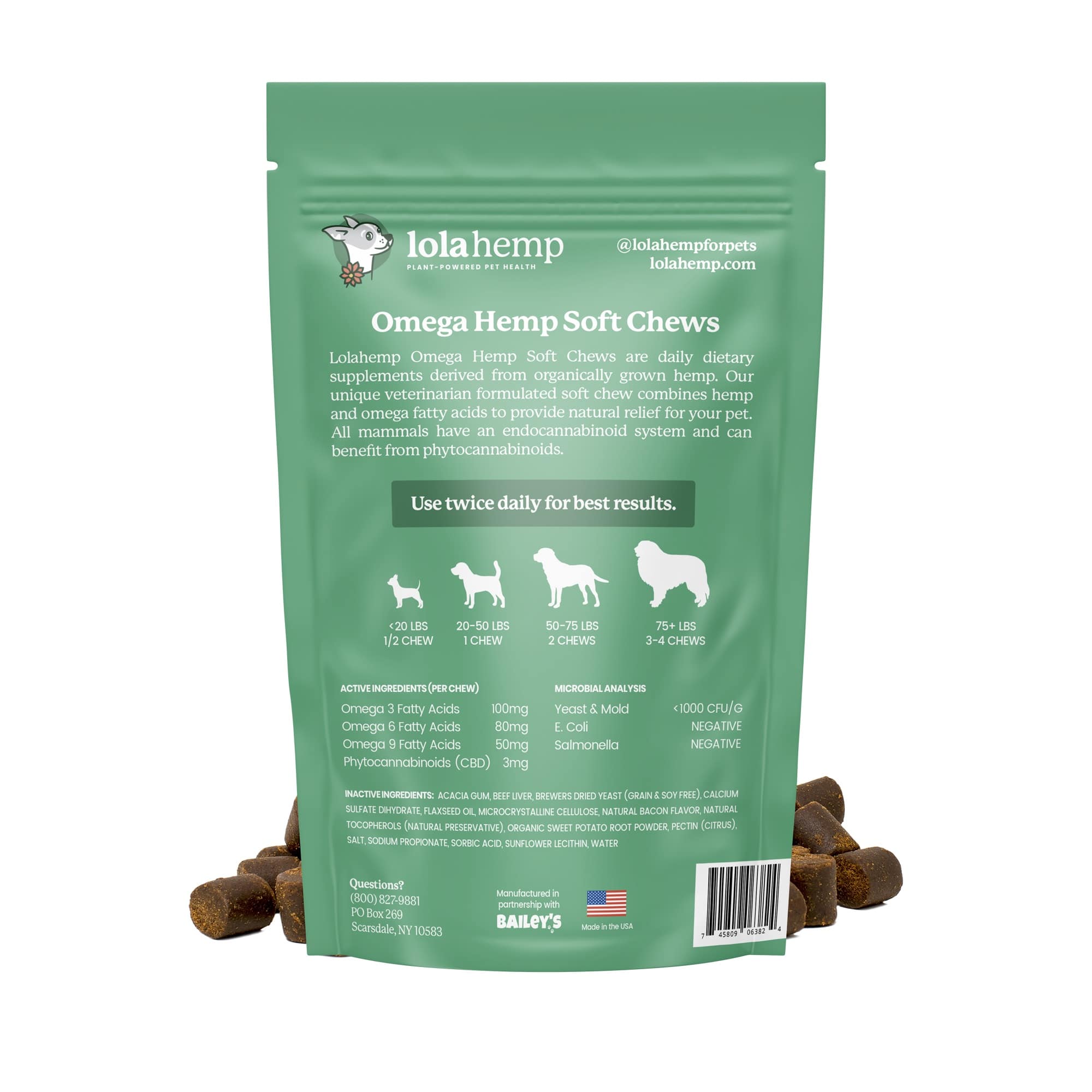Fish oil has been making waves (pun intended) in the world of pet care for good reason. Packed with omega-3 fatty acids, it can support your dog's overall health, from shiny coats to healthy joints.
Whether you’re dealing with a pup who has dry skin or an older dog in need of joint support, fish oil may be a great addition to their diet. But what makes it so special? Let’s dive into the essentials of fish oil for dogs and why it's worth considering omegas and other natural anti-inflammatory supplements for your furry friend.
Fish Oil Has a Lot of Potential Benefits for Dogs
Fish oil is a powerhouse of omega-3 fatty acids, mainly EPA (eicosapentaenoic acid) and DHA (docosahexaenoic acid). These fatty acids are crucial for maintaining your dog's health, but they’re not something their body can produce on its own. That's where fish oil comes in—providing an easy and effective way to boost your dog's intake of these essential nutrients.
Omega-3s help reduce inflammation, support heart health, improve brain function, and promote a healthy coat and skin. If your dog is prone to itchy, dry skin or suffers from joint pain, fish oil can make a noticeable difference. Plus, the anti-inflammatory properties can help with conditions like arthritis, making it a go-to supplement for senior dogs or those with chronic inflammation.
Benefits for Dogs with Itchy Skin
If your dog’s constantly scratching, biting, or licking at their skin, fish oil can be a game changer. Itchy skin in dogs is often caused by allergies, dry skin, or inflammation, and omega-3 fatty acids from fish oil can help soothe these issues from the inside out.
Omega-3s help reduce the inflammatory response that leads to itching, and they also work to lock in moisture, keeping your dog’s skin hydrated. This can be especially helpful for dogs with dry, flaky skin or those prone to hot spots and other skin irritations.
Adding fish oil to your dog's diet can promote a shinier, healthier coat, while also calming that uncomfortable itch. It’s a simple yet effective way to help your dog feel more comfortable and scratch less.
Benefits for Dogs with Arthritis
Arthritis is a common issue for aging dogs, but fish oil can offer some relief. The omega-3 fatty acids in fish oil, especially EPA and DHA, are known for their anti-inflammatory properties. They help reduce inflammation in the joints, which can ease the pain and stiffness that comes with arthritis.
By incorporating fish oil into your dog’s diet, you can help improve their mobility and reduce the discomfort caused by inflammation. Regular use of fish oil may also slow the progression of arthritis and improve overall joint health, making it easier for your dog to enjoy their walks and playtime.
Fish oil can also support overall joint health by improving lubrication in the joints, allowing for smoother, less painful movement. It’s a natural and effective supplement that complements other treatments, like joint medications or therapies, your vet may recommend.
How to Find Fish Oil for Your Dogs
When choosing a fish oil supplement for your dog, it's crucial to look for high-quality products specifically designed for pets. fish oil is formulated to meet the unique needs of dogs, providing the correct dosage of omega-3 fatty acids like EPA and DHA. These oils are processed to remove harmful impurities, such as heavy metals, that might be found in lower-quality human fish oil products.
While human fish oil can offer some benefits, it's not always the best option for your dog. The dosages in human fish oil are typically higher than what is safe for dogs, and they may lack the necessary quality controls for pet use. Additionally, human fish oil supplements often come in forms or concentrations that aren't easily absorbed by dogs, making them less effective.
For the best results, opt for fish oil supplements that are specifically designed for dogs, most often salmon oil or wild Alaskan salmon oil. These products are safer, more effective, and ensure your dog is getting the right amount of omega-3s to help with inflammation and overall health. Your vet can help you find the right brand and dosage based on your dog’s needs.
Risks & Considerations When Using Fish Oil for Dogs
While fish oil can provide numerous health benefits for dogs, it's important to be aware of the potential risks and side effects. Here are some things to keep in mind:
-
Overdose and Imbalance: Giving too much fish oil can lead to an overdose of omega-3 fatty acids, which can result in symptoms like diarrhea, vomiting, and fatigue. High doses over time can also interfere with your dog's ability to absorb fat-soluble vitamins, such as vitamins A, D, E, and K.
-
Digestive Upset: Some dogs may experience stomach upset, including loose stools or gas when they start taking fish oil. This is why it's important to start with a small dose and gradually increase it to give your dog’s system time to adjust.
-
Blood Thinning: Omega-3 fatty acids in fish oil have a natural blood-thinning effect, which can be a concern for dogs that are on medication for clotting disorders or those undergoing surgery. If your dog is scheduled for surgery or has a blood clotting issue, consult your vet before starting fish oil.
-
Mercury and Toxins: Not all fish oils are created equal. Low-quality fish oils can contain harmful contaminants like mercury, PCBs, or other toxins that can harm your dog’s health. Always opt for veterinary fish oil from reputable sources that undergo rigorous testing for purity.
By choosing the right fish oil supplement and sticking to the recommended dosage, you can help mitigate these risks and ensure your dog gets the maximum benefits from the product. Always check with your vet before adding new supplements to your dog’s diet, especially if your dog has underlying health conditions or is taking medications.
Conclusion
Fish oil can be a valuable supplement for dogs, offering numerous health benefits such as improved coat condition, joint support, and enhanced immune function. However, it's crucial to choose a high-quality veterinary fish oil and follow the proper dosage to avoid potential risks like digestive upset or blood thinning.
Always consult with your vet before introducing fish oil to ensure it's the right fit for your dog’s unique needs. When used correctly, fish oil can be a simple yet effective way to boost your dog's overall health and well-being.
Fish Oil for Dogs – Frequently Asked Questions
Can I give my dog human fish oil?
Human fish oil is not recommended because it may contain inappropriate dosages or impurities not tested for pets. Veterinary fish oil is safer and properly formulated.
How long does it take for fish oil to help my dog?
Most dogs show benefits within 4–6 weeks, though some improvements in coat or itching may appear sooner.
Can fish oil help dogs with allergies?
Yes. Omega-3 fatty acids may help reduce inflammation associated with allergic skin issues.
How much fish oil is safe for my dog?
Dosing depends on body weight and the concentration of EPA/DHA in the product. Follow veterinary dosing guidance to avoid overdose.
Are there dogs who should not take fish oil?
Dogs with clotting disorders, pancreatitis, or dogs scheduled for surgery should avoid fish oil unless approved by a veterinarian.









